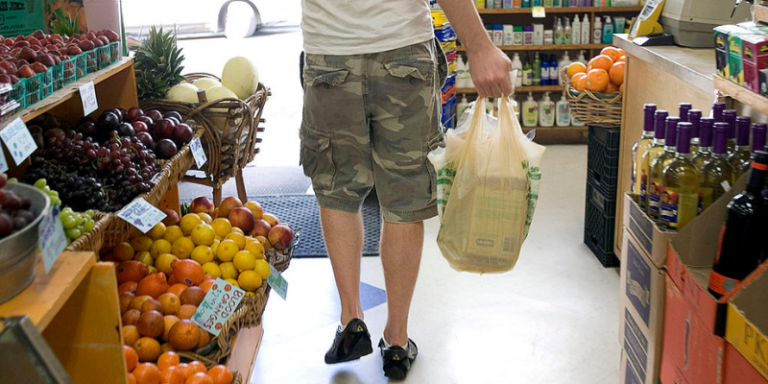The Spill: A Super Day
Weekly news you can use.
By: GenZ Staff | March 4, 2020 | 800 Words

(Photo by David Paul Morris/Getty Images)
Joe Biden Takes Super Tuesday
This week saw real progress in deciding who will represent the Democratic Party during the 2020 presidential election. March 3 was Super Tuesday, one of the biggest occasions in selecting a presidential nominee. Fourteen states, plus American Samoa and Democrats Abroad (party members who are currently out of the country), held primary votes on Super Tuesday.
Former South Bend Mayor Pete Buttigieg and Minnesota Senator Amy Klobuchar dropped out of the race, leaving just five candidates to compete on Super Tuesday: former Vice President Joe Biden, billionaire businessman Michael Bloomberg, Hawaii Representative Tulsi Gabbard, Massachusetts Senator Elizabeth Warren, and Vermont Senator Bernie Sanders.
The victor of the day was Joe Biden, who won in at least nine states, including Minnesota, Oklahoma, Texas, Arkansas, Tennessee, Alabama, North Carolina, Virginia, and Massachusetts. He is also predicted to win Maine, which is still counting its votes.
 Bloomberg had staked much of his campaign on a successful Super Tuesday bid; after failing to achieve that, he soon dropped out of the race.
Bloomberg had staked much of his campaign on a successful Super Tuesday bid; after failing to achieve that, he soon dropped out of the race.
The two main rivals for the 2020 Democrat presidential nominee are now Bernie Sanders and Joe Biden. Some see these two men as representing two wings of the Democrat Party: Sanders is a socialist who embodies the radical progressive wing of the party, while Joe Biden represents more moderate Democrats.
Each primary candidate competes for delegates – people who will support them to become the party’s presidential nominee at a national convention. There is still a long way to go until any candidate reaches the 1,991 delegates needed to gain the party’s presidential nomination. So far, the number of delegates held by each candidate are:
- Joe Biden – 381
- Bernie Sanders – 336
- Elizabeth Warren – 43
- Tulsi Gabbard – 1
Coronavirus Panic: Should People Worry?
The Coronavirus (COVID-19) has caused a lot of panic across the nation and the world. Originating from China, the virus has spread to nearly every country, infecting thousands of people. In the U.S., it has claimed nine lives in the state of Washington: All of those who tested positive for the virus were patients at the Life Care nursing home in Kirkland. It has taken the lives of more than 3,000 worldwide. But, is this new flu really a reason for such panic?
In 2009, the H1N1 virus, which was oftentimes referred to as the Swine Flu, infected about 60.8 million people in the nation and resulted in about 12,500 U.S. fatalities during the first year of the infection. Around the world, it caused anywhere between 152,000 to 575,000 deaths.
There are many strains of influenza that people battle each and every year. Flu season sees between 12,000 to 61,000 deaths in the U.S. each year, according to the Centers for Disease Control and Prevention (CDC). The flu season began in October and already there have been about 18,000 deaths.
Is the coronavirus a pandemic? Is there a huge cause for alarm? It’s too early to tell yet, but the infection seems to affect the elderly and those with already compromised health issues the most. Still, it is a good idea to take preventative measures such as washing hands and not touching your face too often.
NY Bans Single-Use Plastic Bags
The state of New York has banned single-use plastic bags from stores. For those who still wish to use the plastic bags for their groceries and other purchases, they can pay five cents for a heavier bag that can be more easily re-used.
Some New Yorkers are not happy about this new development, saying it is inconvenient and may cost them extra money. Businesses might feel the brunt of the new law since the state could end up fining them up to $250 if they choose to hand out the bags to their customers, and if they do so again within the same calendar year, they may see a $500 fine.
Others suggest that regulations like this help to reduce the amount of single-use plastics released into the ecosystem. New York alone is thought to use 23 billion single-use plastic bags every year, most of which end up in landfills or as environmental pollution.
The new law was approved last April and went into effect on March 1 of this year. Shoppers can purchase reusable bags made out of canvas or some other environmentally friendly material that they can take home and bring back to the store each time they shop.
Other states have imposed similar bans, and according to the officials, it has helped to reduce the use of plastic bags. In Los Angeles, California, a 10-cent fee was levied for using plastic bags and that led to a 94% reduction in consumption. In Washington, D.C., five cents is the cost per bag for both paper and plastic, which officials claim reduced the use by 50%. Various regions across the globe have employed similar laws, including Europe and Australia.

















